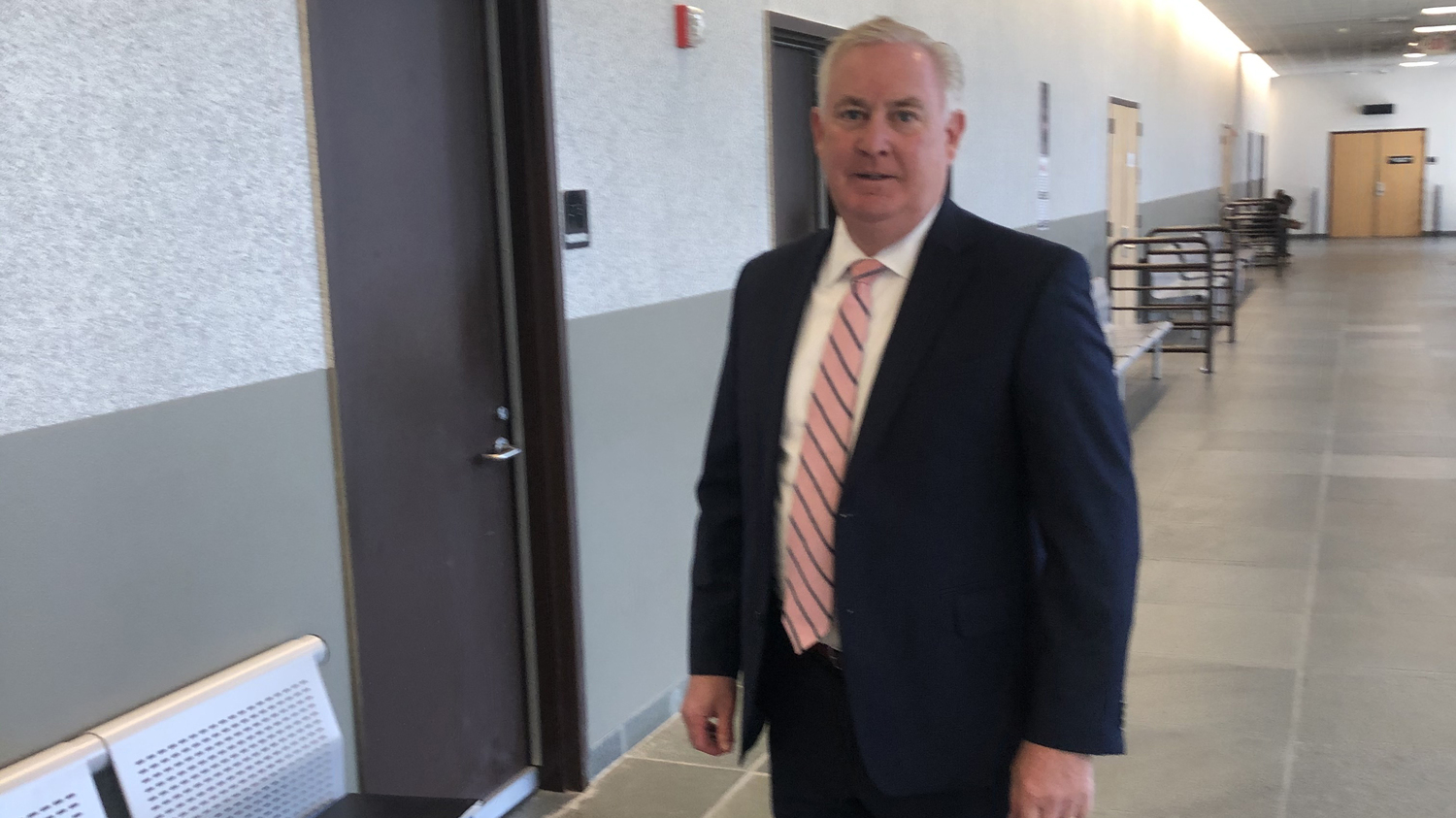
The prosecution of Tenia Campbell, accused of driving her twin toddlers to Montauk and murdering them in 2019, may soon go to trial.
That is according to her attorney, John Halverson, who met with prosecutor Frank Schroeder and Justice Richard Ambro in chambers on Wednesday, May 17. He spoke with reporters in the Riverside courthouse afterward.
At dispute between prosecutors and the defense is Campbell’s state of mind at the time of the killings: Did she understand that the killing of her 2-year-old twin daughters was criminal? Or was she suffering from a mental defect so severe that she was not aware of the consequences of her actions?
Neither side is disputing the facts: On June 27, 2019, Campbell, then 24, placed her daughters in her vehicle — her mother’s minivan — outside her house in Medford and drove to Montauk.
In the course of that drive, she called her mother in Mastic Beach, telling her that it was “too late.” She said that she had already killed the girls. Police said they had been suffocated.
Campbell’s mother called 911 while her daughter was still on the phone with her, using a separate line.
That led to an all-out manhunt on the East End, ending when an East Hampton Town Police officer spotted the vehicle, parked outside of Third House Park, east of downtown Montauk.
When an officer approached Campbell’s vehicle, Campbell, now outside the car, reportedly begged the officer to shoot and kill her.
She had told her mother during her cellphone call, according to the mother’s statement given to police that day, that Campbell had planned to walk out into the Atlantic Ocean and drown herself.
Campbell has been incarcerated since, bouncing back and forth between the Suffolk County correctional facilities in Yaphank and Riverside.
Campbell was brought to the courthouse on May 17 but remained in her holding cell, out of sight, during the session. Her next court date is June 7, which will be less than three weeks before the four-year anniversary of her incarceration, without a trial.
District Attorney Ray Tierney’s office, as well as Halverson, have explained that the delay in receiving the constitutionally required speedy trial is due to a couple of factors. First, there was the pandemic, which put a hard stop on almost all court proceedings in Suffolk County. Then there was the psychiatric evaluation by a Manhattan-based forensic psychiatrist, Dr. Alexander S. Bardey, to determine Campbell’s state of mind at the time of the murders.
Bardey found, early last year, that Campbell was suffering from a severe mental defect when she killed her daughters, meaning that she was not culpable of the crime of murder.
Campbell’s mother had told police that her daughter was bipolar, and had been acting bizarrely that week, causing Campbell’s mother great concern.
The prosecution countered with its own expert, Manhattan-based forensic psychiatrist Jeremy Colley. His report took some time, but was presented to the court this past March.
According to Halverson, Colley took a diametrically opposite position from Bardey: He found that Campbell was not suffering from a mental defect when the children were killed.
According to Halverson, between now and Campbell’s June 7 court date, the two sides may be able to negotiate some kind of plea deal that both sides would find satisfactory.
Given the opposing psychiatric forensic reports, the defense would face an uphill battle if the case goes to trial.
New York attorney Arnold Levine, who has represented defendants with similar insanity defenses, said in an interview last year that the difficulty in such a defense is that jurors are prone to find sanity where it may not exist.
The burden of proof of insanity, he said last year, rests on the defense. The defendant must be proven by a preponderance of the evidence to have been insane at the time of the crime.
That is a huge legal mountain to climb, he said.
If the prosecution can demonstrate that the defendant planned the crime, jurors tend to find against the defendant, reasoning that the premeditation and planning demonstrate sanity at the time, Levine said.
This is a false, though easily reached, interpretation, Levine said. “If he is making a plan [to kill his father] because he thinks his father is the devil,” he said, as an example, “he has to get rid of his father … you still have an insanity defense.”
The difficulty of such a defense when you have diametrically opposed forensic psychiatrists on each side will have to be weighed by Halverson, Campbell and her family between now and June 7.